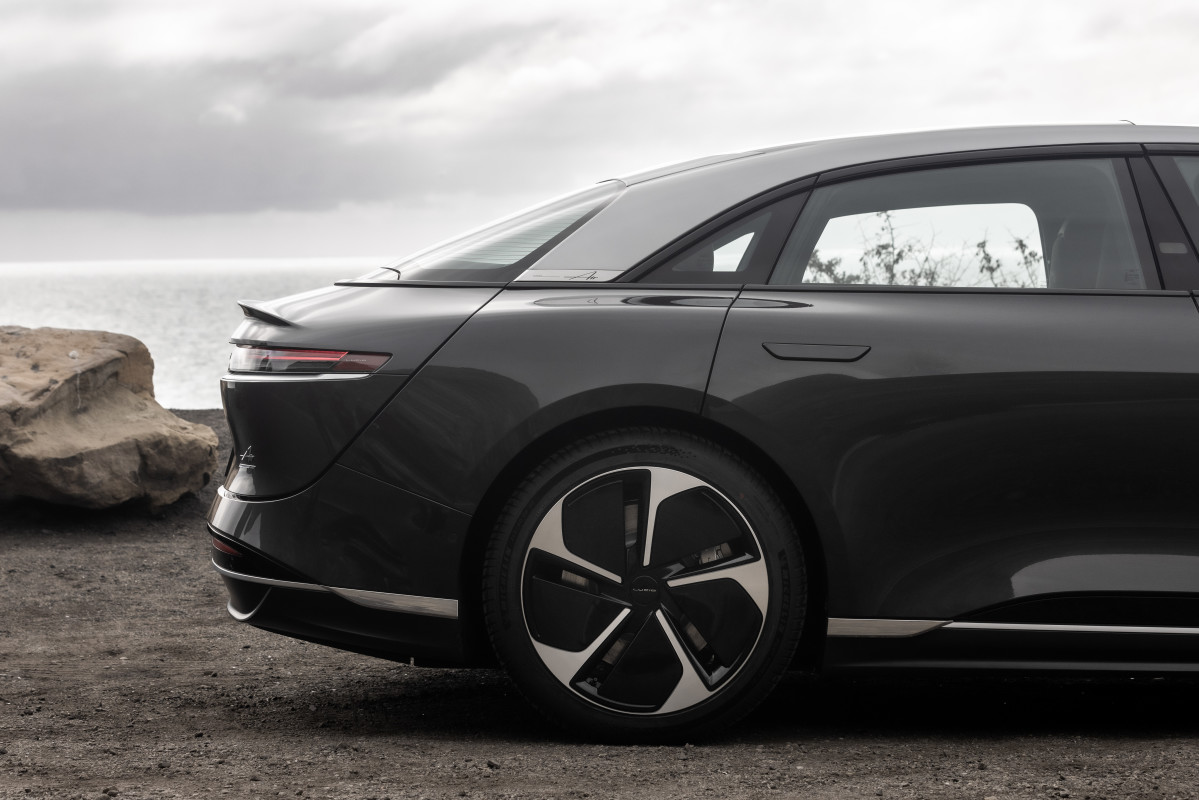Lucid’s CEO Issues Stern Warning originally appeared on Autoblog.
Lawmakers are not being easy on small EV makers
For years, electric vehicle startup companies like Tesla faced a tough uphill road on their journey toward making a mark on the U.S. auto market. However, they may face an even steeper climb thanks to new developments arising from Washington, D.C..
In a recent podcast appearance, Lucid Motors interim CEO Marc Winterhoff urged Beltway lawmakers not to mess with homegrown EV makers just as they’re gaining traction. His comments come as Congress debates whether to eliminate or extend the federal EV tax credit, a key incentive that has helped some buyers choose electric vehicles over gas-powered cars.
Lucid Gravity and Lucid AirLucid
Lucid CEO: Smaller EV companies should benefit from Federal tax incentives.
During the June 25 episode of Automotive News’ Daily Drive podcast, Winterhoff argued that smaller, startup firms like Lucid deserve more time to benefit from the $7,500 federal tax credit, which has historically helped established automakers sell electric vehicles (EVs) in the U.S. market. He argued that startups and other new companies shouldn’t get penalized for not reaching sales milestones that established manufacturers already achieved, and that by granting them the same opportunities would encourage competition and innovation in the EV market, it would ultimately benefit consumers and the industry as a whole.
“It’s widely known we haven’t yet sold 200,000 EVs. But many others in the past have, and they all had that credit,” he said on the podcast. “Why would you now change it and basically make it very difficult for new players in the market?”

Lucid Air PureLucid
Currently, lawmakers are divided on the future of EV incentives. The Senate’s version of the budget bill proposes eliminating the tax credit within 180 days for all automakers, big or small. On the other hand, the House’s version would offer support to smaller manufacturers by extending the credit through 2026 for those who have not yet reached the 200,000-vehicle sales cap. The House’s extension could be a significant advantage for Lucid, which has sold only about 21,000 vehicles since the launch of its Air sedan in 2021.
Despite this, Winterhoff emphasized that Lucid isn’t just an EV company—it’s an American EV company with significant roots in America. Lucid builds both its Air and Gravity vehicles in Casa Grande, Arizona, and its corporate headquarters are located in Newark, California, which is proof that Lucid made a huge investment in U.S.-based production and supply chains.

Lucid Gravity and Lucid AirLucid
“We made that decision already years ago to actually vertically integrate extensively here in the United States,” Winterhoff noted. “I definitely am a proponent that [the EV credit] stays as much as it can and also for the cap of up to 200,000.”
Stripping away that benefit now could slow Lucid’s momentum just as it starts to gain footing. The company plans to dramatically increase its sales in 2025. While vehicles like its $69,900 Air sedan are well over the price cap for tax credits under current rules, Lucid buyers can still take advantage of the full $7,500 credit when they lease—a clause that has worked for the company.
Despite this, Winterhoff acknowledged that the EV industry can’t rely on subsidies forever. “Eventually, EV makers will have to succeed without incentives,” he said. “I mean that’s totally clear.”
However, despite EV sales picking up in many major hubs, the overall EV transition is still in its early stages, as adoption rates still lag in many corners and pockets of the country. Despite this, he believes that these are just growing pains, cutting incentives now would be premature and damaging. “I really think that this is a normal process in the adoption of new technologies,” he says. “We’ve seen this in many, many other instances as well.”

2025 Lucid Air TouringRyan Brackin
Final thoughts
As Congress hashes out the final version of the bill, it’s important to recognize that the stakes are high not just for Lucid but for the future of American EVs in general, especially if they plan to peg the U.S. as a player in ushering in the next era of transportation.
However, Winterhoff recognizes that affordability is currently the main concern when it comes to EV adoption. EV tax credits have addressed this issue in the past, before the current situation in Washington. However, potential buyers still find the upfront costs of electric vehicles to be much higher compared to traditional gasoline-powered cars. As a result, many consumers are hesitant to make the switch without significant financial incentives.
Lucid’s CEO Issues Stern Warning first appeared on Autoblog on Jun 25, 2025
This story was originally reported by Autoblog on Jun 25, 2025, where it first appeared.


